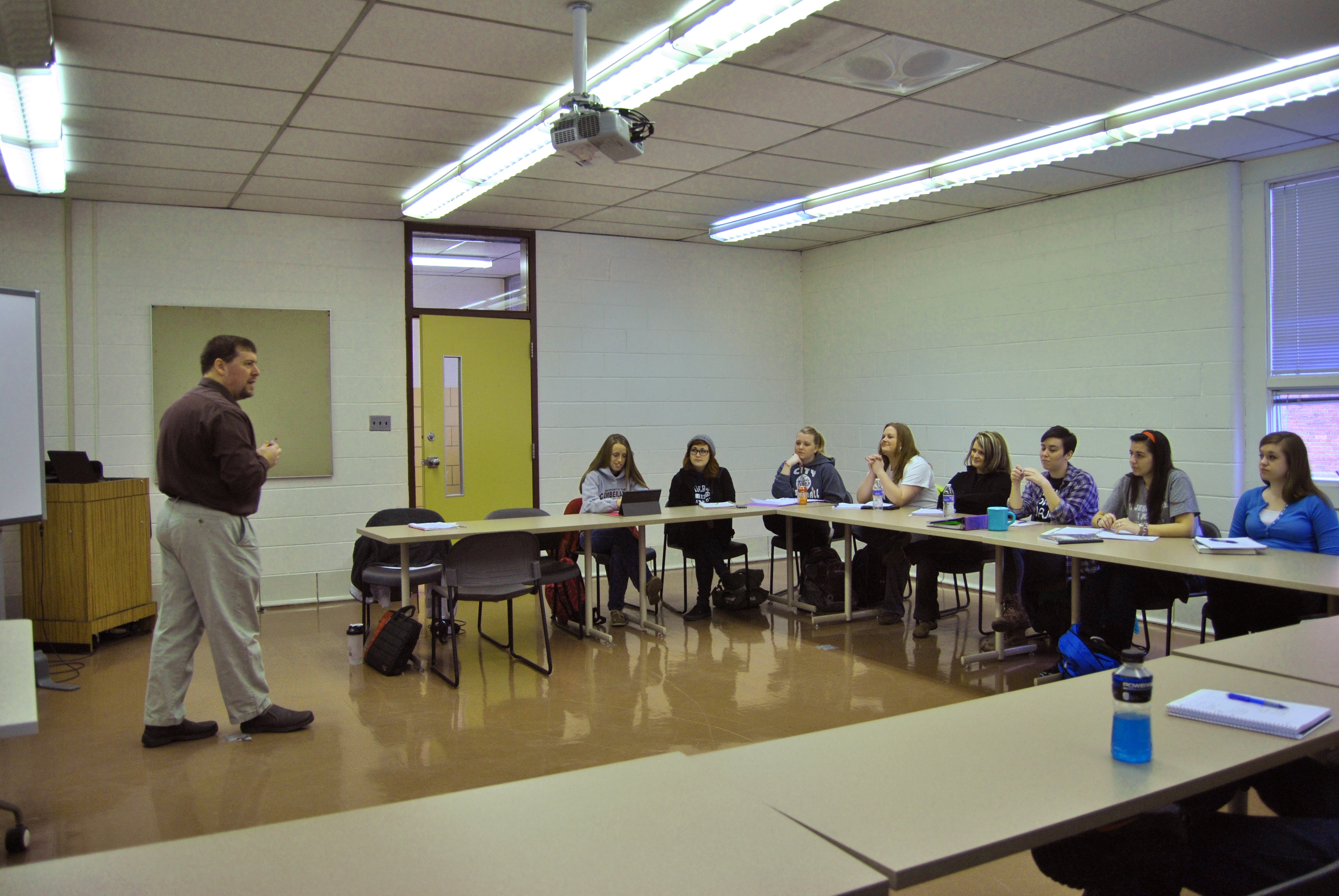 School name: University of the Cumberlands
School name: University of the Cumberlands
Type of college/university: private liberal arts university
School locale: We are located in one of the poorest Congressional districts in the United States (southeastern Kentucky)
Classes I teach:
I teach Research Design and Statistics, Learning and Cognition, I/O Psychology, Sport Psychology, Freshman Orientation Seminar, Senior Seminar, and various online courses.
What’s the best advice about teaching you’ve ever received?
One of my teacher friends often reminds me that the good teachers are ones who can educate young minds without losing their own.
What book or article has shaped your work as a psychology teacher?
McKeachie’s Teaching Tips is a resource I still consult often.
Tell us about your favorite lecture topic or course to teach.
Research Design and Statistics is my favorite course to teach. Many of my students refer to the course as “sadistics” when it begins. Often their fear is rooted in math anxiety. However, most of them beg for computation problems rather than conceptual problems as the course progresses. Moreover, most of them develop a much better understanding and appreciation of how numbers serve as tools to help address questions about human behavior. I see more cognitive growth in my Research Design and Statistics students than in any other course.
Describe a favorite in-class activity or assignment.
Although I have my “go to” activities and assignments that always go well, I do not have a favorite. In general, my activities and assignments are applied in nature. For example, rather than have students define change blindness I will ask them to give me an example of where they have seen change blindness in action this week. Moreover, I might ask students to do a change blindness “experiment” on their own, such as switch clothes in the middle of an event, report on how many people noticed the change, and give plausible reasons why the change was noticed or not.

What teaching and learning techniques work best for you?
Although it increases my grading load, I give students numerous opportunities to earn points during the semester. Students must provide some type of “deliverable” nearly every class period. By doing so I get a sense of which concepts need further explanation, students have ample opportunities to actively think about course material, and plenty of deliverables also minimizes situations where students beg for extra credit at the end of the semester.
What’s your workspace like?
Because I have a heavy teaching load of face-to-face classes, online classes, and supervising independent research projects, keeping my workspace tidy often falls near the bottom of my priority list. I often quip that a cluttered office means a clear mind. Although I have never misplaced a student assignment or important document, I occasionally have trouble reading the notes I have written to myself. My handwriting skills seem to be decreasing with age.
Three words that best describe your teaching style.
Repetition boosts learning!
What is your teaching philosophy in 8 words or fewer?
Learning is an active and constructive process.
Tell us about a teaching disaster (or embarrassment) you’ve had.
A prospective donor to the university recently sat in on one of my courses. I was lecturing the students on the importance of proofreading their written work because there had been numerous writing errors in recent assignments. Shortly after my lecture I gave a handout to the class. The donor wryly pointed out to me that my handout contained a typographical error. He was right!
What is something your students would be surprised to learn about you?
My wife and I lived inside of a funeral home for a year.
 What are you currently reading for pleasure?
What are you currently reading for pleasure?
Most of my pleasure reading these days is in the domain of success. I am intrigued by the fact that my students with the most potential (academically or athletically) are not necessarily the ones who turn out to be most successful. I want to learn more about what characteristics ultimately lead to success in life so I can try to help instill these characteristics in my students and children. I am an avid sports fan and read a great deal about sports too.
What tech tool could you not live without?
I would not want to go back to academic life without course management systems such as Blackboard.
What’s your hallway chatter like? What do you talk to colleagues about most (whether or not it is related to teaching/school)?
The hallway chatter in my department often involves student stories. Some of them are humorous such as telling my colleagues about a student who called to notify me he could not come to class on a cold day because he did not have an ice scraper to remove the ice from his car windshield (true story!) Others are more depressing such as looking for advice about how to motivate a student taking a class for the third time who is failing the course again.
